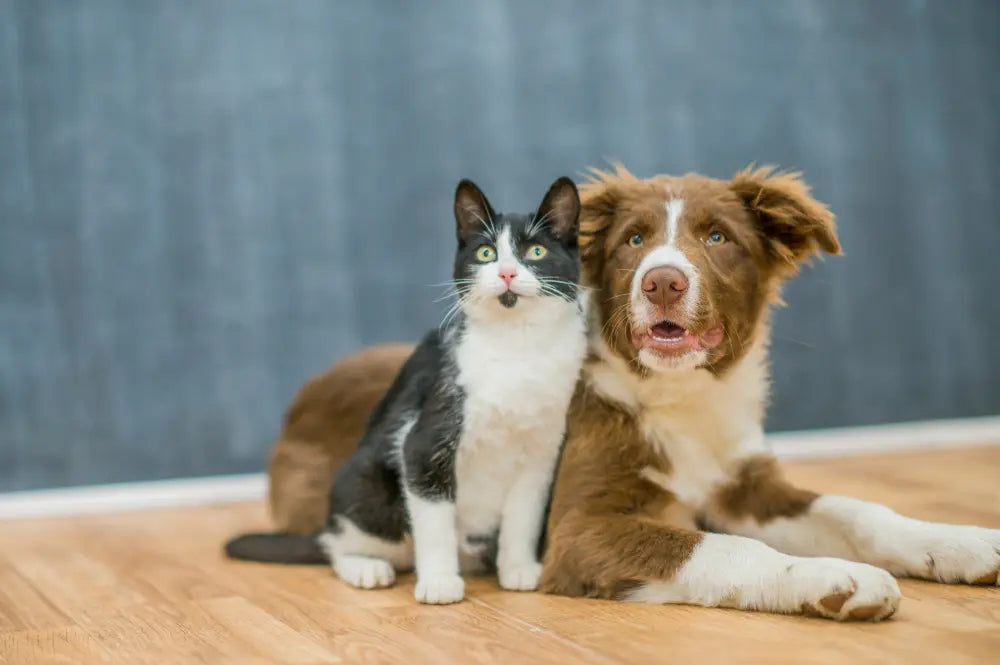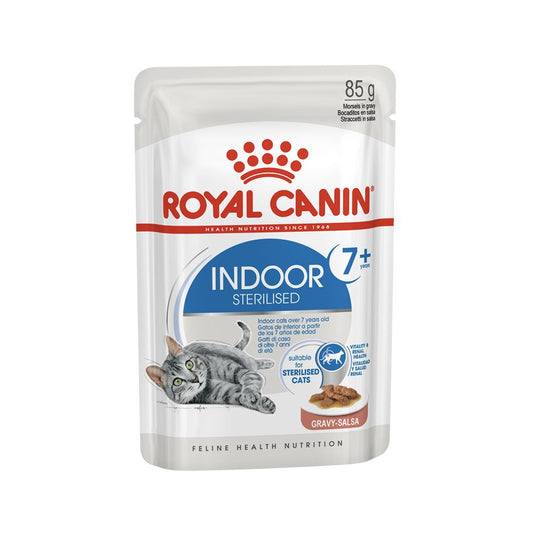“Are you a cat or dog person?”-This is perhaps the question we all ask someone when we meet for the first time. While this is a great icebreaker, it is also a reminder of how pet animals can be great companions and bring joy!
Cats and dogs are different kinds of animals. Therefore, they have unique behavioural patterns. This would mean, depending on which pet you have, they would need different levels of care and discipline.
In the cats vs dogs debate each have distinct charms, each with its unique set of characteristics, demands, and joys.
Cats are more independent and have an air of nonchalance. However, dogs tend to express their affection loud and proud. They have an infectious enthusiasm that fosters a deep sense of camaraderie.
So, who is your “pawfect” or “purrfect” match? Let’s find out, shall we?
|
Table of Contents
|
Cats Vs Dogs: How Each Pet Fares
Here is a quick rundown of what it is like having a dog or cat as a pet. What are the differences when it comes to raising and disciplining them? Let’s have a comparative look at cats vs dogs as pets.
1. Discipline
Disciplining cats and dogs involves unique approaches due to their differing natures. Cats have an independent nature and sometimes they stay aloof. They are also less likely to respond to traditional discipline behaviours and training. You need a lot of patience and understanding to train them.

On the other hand, since dogs are pack animals, they will respond to their trainers. Usually, in packs, there is an alpha who the remaining pack follows.
So, if you are a dog owner, you can easily train your pet to be responsive to your commands. Dogs tend to seek approval from their owner. This makes them more amenable to training and discipline.
Disciplining your pet also can mould their habits. Different animals have specific habits that you can train with them accordingly. Let’s see the habits in this cats vs dogs debate.
2. Habits
Cats and dogs have diverse habits and that is what makes each of them charming. Cats usually have the habit of purring. There are some cat purring health benefits- it helps them to reduce stress
Cats love grooming. If you have a pet cat you would know how they love to sit around and “lick” themselves squeaky clean. So, you get grooming accessories for your cat. They prefer solitude for their personal care routines. They are also known for their agility and ability to climb.
On the other hand, dogs being pack animals have a strong sense of territory. They love to dig and chew. This is their mark for establishing their space and communicating with others.
Dogs vary widely in their grooming needs based on their breed. Some breeds have minimal grooming requirements, while others, such as long-haired breeds, demand regular brushing, baths, and even professional grooming.
Additionally, dogs generally need more outdoor exercise and mental stimulation than cats. Daily walks, playtime, and engaging activities are essential for a dog's well-being.
When it comes to training cats vs dogs it also depends on their temperament. Let’s see how this affects their personality and nature.
3. Temperament
Cats usually have a calm demeanor and are independent. Your feline friends can adapt to different living situations and are generally more reserved in expressing emotions. They will usually try to sneak and steal cat food.
Dogs, however, have varied temperaments based on breeds. Some dogs are highly energetic and playful, while others may be more laid-back and calm. Golden retrivers are very friendly, while guard dogs like Great Danes and German Shepherds are always on guard.
4. Domestication
Cats and dogs have undergone different evolution for domestication. Cats, initially domesticated for their pest-control abilities, have retained much of their independent nature.
Humans have domesticated dogs since the ancient ages. They are truly man’s oldest and truest friends. Dogs, domesticated for various purposes such as hunting, herding, and companionship, have developed a close bond with humans, resulting in a more social nature.
When it comes to domesticating them, you need to have the right space. So, how much space do cats vs dogs require?
5. Space Requirements
The space needed to accommodate cats and dogs differs significantly. Cats are generally more adaptable to smaller living spaces, making them suitable for apartment living. Their independent nature allows them to find cozy corners for napping and exploring vertical spaces.
On the contrary, dogs, especially larger breeds, often require more room to move around. They thrive in environments with access to a yard or open space for exercise and play.
While these factors are important, you just remember in this cats vs dogs, your pets are supposed to provide your emotional support. That is why your choice of pet boils down to your emotional needs and personality. Let’s see how.
Pets are Great Emotional Support: Choose a Furry Friend for Comfort
You can choose any one of the furry friends depending on your preference and personality. The best thing is owning either of them will make your life happier and exciting.
Cats
Cats offer a calming presence, with their graceful and independent demeanour creating a soothing atmosphere at home. Their ability to provide companionship without constant attention is a unique trait, making them ideal for individuals with busier lifestyles.

From playful kittens to serene seniors, cats provide joy and comfort, fostering a bond that enhances the well-being of their human companions. Whether curled up on your lap or peacefully lounging nearby, cats contribute to a serene environment, offering subtle yet impactful emotional support.
Dogs
Dogs, known for their unconditional love and loyalty, bring a profound emotional connection to their owners. Their genuine companionship fosters a sense of security and attachment, creating a strong bond.
Besides companionship, dogs excel at providing emotional support and stress relief. Their eagerness to please and empathetic nature make them intuitive partners during challenging times, offering a comforting presence that can alleviate stress and lift spirits.

The lively interactions and affectionate gestures of dogs contribute significantly to the emotional well-being of their human counterparts.
You can also maintain good dog health by keeping them company. Whether seeking unwavering loyalty or an empathetic listener, dogs prove to be exceptional emotional companions.
Consider Your Personality and Lifestyle Before Choosing
People will keep on debating which is better in "cats vs dogs". You can choose a pet that matches your temperament and needs. Regardless of your choice, it is all about the conditional love they show you!
Consider your personality and lifestyle carefully when selecting a pet.
Choose Dogs if: You are an active and outgoing individual. A dog could be an ideal companion, as they thrive on walks, fetch, and social interaction.
Choose Cats If: Are you an introvert? Then you may lean more towards cats in the “cats vs dogs” debate. Cats being independent, and capable of self-entertainment might be a better companion for you. They also require less attention than dogs.
Choosing a cat or a dog isn't a matter of right or wrong; it hinges on your preferences. Regardless of which pet you choose, with enough love and affection, you will surely find a forever friend.
FAQs: Cats Vs Dogs: Which is the Ideal Pet?
How many times do I need to feed my pet?
You can give your pet fresh dog food or cat dog one or two times a day. It's best to do it twice daily at 8-12 hour intervals.
Which pet has better adaptability?
Generally, cats exhibit superior adaptability as pets, easily adjusting to various living spaces and routines. However, it also depends on the living environment and breed.
Which is the best cat breed for hot climate?
Siamese and Sphynx are cat breeds well-suited for hot climates due to their short coats and heat-tolerant nature.
Can I keep a husky in hot places?
Huskies with thick fur are for cold weather. Keeping these breeds in a hot climate can be a challenge for both the owner and the dog. It is better not to do so.
Conclusion
This eternal debate of cats vs dogs will not stop. Remember that each offers unique charms and demands. Regardless of which pet you choose- take care of them and groom them. Cats and/or dogs will make your days happier!
Both, with love and care, become lifelong friends, enhancing well-being and joy. Take care of your fur friend with the right food and grooming accessories from Maryam’s Pet.






